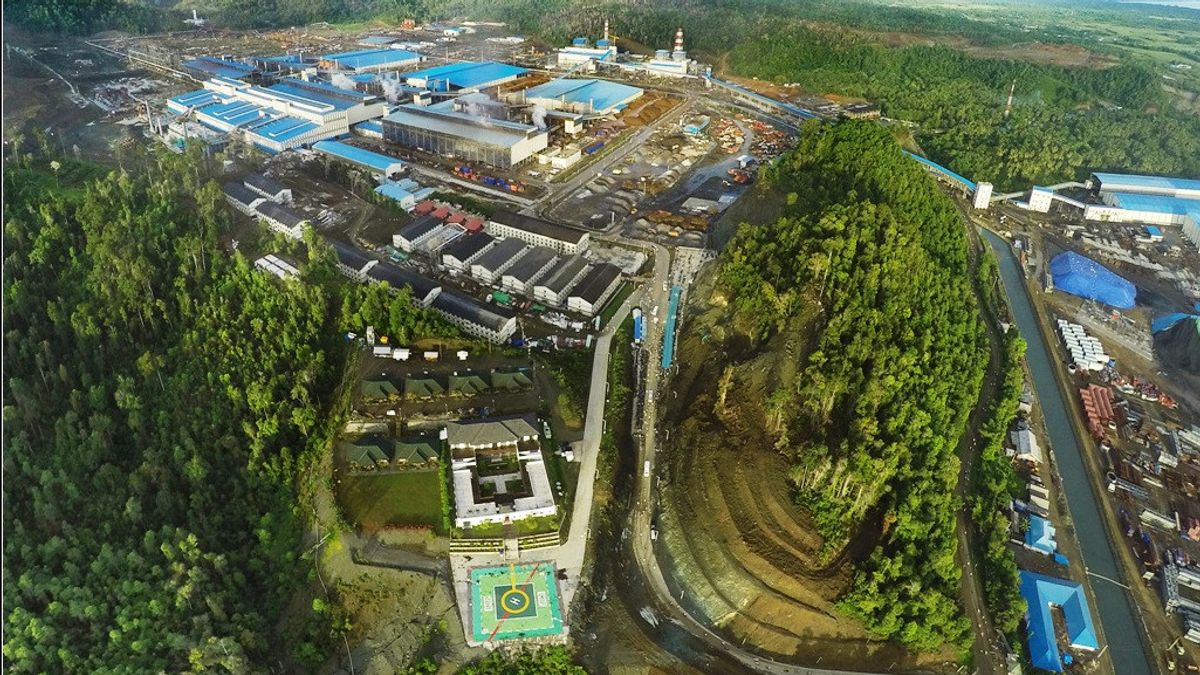JAKARTA - The Ministry of Industry welcomes the implementation of the industrial gas price at the level of 6 US dollars per million metric British thermal unit (MMBTU). This is believed to be able to boost the competitiveness of the industrial sector as well as increase investment in the country, so that it will accelerate national economic growth.
"The price of gas for industry is an important aspect of the production cost structure and provides a significant competitiveness factor," said Industry Minister Agus Gumiwang Kartasasmita in Jakarta, Wednesday, April 15.
The Minister of Industry is also optimistic that the decline in industrial gas prices will boost productivity and utility in the domestic manufacturing sector. This is consistent with the government's determination to spur the performance of the non-oil and gas processing industry sector by maintaining the availability of raw materials and energy, including encouraging competitive prices.
"Most of the domestic manufacturing industries need gas, both for energy and raw materials. Therefore, the price of industrial gas in the country must be competitive, so that the industrial sector can increase the efficiency of its production process, which in the end will be able to produce powerful products. competitiveness both domestically and globally, "he explained.
The determination of the industrial gas price to 6 US dollars per MMBTU after the issuance of Regulation of the Minister of Energy and Mineral Resources (ESDM) Number 8 of 2020 concerning Methods of Determining Users and Prices of Certain Natural Gas in the Industrial Sector. The regulation is an implementation of the results of a limited meeting on March 18, 2020, which decided to adjust the gas price for industry, including the needs of PT PLN (Persero).
"On the orders and directions of the President, finally the implementation of the natural gas price for industry of US $ 6 per MMBTU at the plant gate was realized, with the issuance of the Minister of Energy and Mineral Resources Decree No. 89K / 2020 for the seven industrial sectors," said Agus.
The seven sectors are the fertilizer, petrochemical, oleochemical, steel, ceramic, glass and rubber gloves industries. Permen 8/2020 also regulates the criteria for industries that get certain gases.
Industries that have received high prices have been lowered towards or near US $ 6 per MMBTU. This depends on how much upstream price adjustment capacity and transportation costs are. But for industries that have already received a price below 6 US dollars per MMBTU, it is still valid and does not have to increase.
As a supervisor for the industrial sector, the Ministry of Industry appreciates the launch of this policy in the midst of appalling conditions due to the national disaster COVID-19. This is inseparable from the serious coordination and cooperation of the gas team under the command of the Minister of Energy and Mineral Resources as well as the involvement of related agencies including the Coordinating Ministry for the Economy, the Coordinating Ministry for Maritime Affairs and Investment, the Presidential Staff Office, the Ministry of Finance and others.
The Minister of Industry asked, for industries that receive a gas price of 6 US dollars per MMBTU at the plant gate, it must prove that this incentive will improve performance and be competitive.
"Meanwhile, for the industrial sector that has not yet become the recipient of a certain natural gas price fixing sector, we will propose it again through the revision of Presidential Regulation 40/2016," he added.
So Fresh Wind
A number of industry players admit that the imposition of industrial gas prices at the level of 6 US dollars per MMBTU is a breath of fresh air amid the impact of the COVID-19 pandemic. This is as expressed by the Secretary General of the Olefins, Aromatic and Plastics Industry Association (Inaplas) Fajar Budiyono.
According to him, the decline in industrial gas prices is very helpful in the continuity of the petrochemical industry, where the gas price will reduce the selling price of the product by around 2 US dollars per ton so that it can compete against imported products, especially those from outside ASEAN.
"Currently, there are several commodities that have been over-supplied due to additional capacity or new investment as well as weakening domestic demand so that this (gas price) decline will strengthen competitiveness for exports," said Fajar.
Deputy Chairman of the Indonesian Synthetic Fiber Producers Association (APSyFI) Bonar Sirait said that his party welcomed the issuance of the long awaited policy to reduce gas prices. This is a very correct decision and will make the industrial sector even better able to compete.
"Moreover, in the current situation in the midst of the COVID-19 pandemic, where there are extraordinary conditions and force majeure for the entire industry. The policy of lowering gas prices will give the industry a new breath," he said.
The English, Chinese, Japanese, Arabic, and French versions are automatically generated by the AI. So there may still be inaccuracies in translating, please always see Indonesian as our main language. (system supported by DigitalSiber.id)











